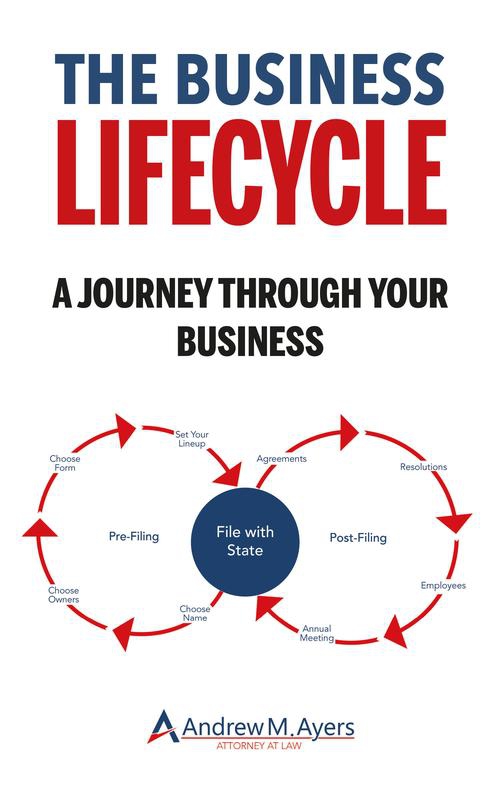The next step in the Business Lifecycle will be choosing the owners of your company. Now, it's often a pretty easy step in the process. Usually, by now you know whether you're going to be running your business on your own or whether you're going to have partners. This may become a bigger decision if you intend to take on investors or other individuals into your company, perhaps you are going to expand with a board of directors.
Working with a Partner
Many people will start with a partner. If you're going to consider a partner for your business, you'll want to make sure you know who you are starting the business with. You'll want to know their background, especially if you're in an industry that has licensing requirements.
For example, if you are opening a restaurant that may need a liquor license, you'll want to know if your soon-to-be partners have any criminal backgrounds. If they do, you may not be able to get a liquor license.
Working with Family
Another common source for partners for your business would be your family members. Of course, they're your family, and you trust them and you know all about them. But have you ever worked with them? The dynamic of working with a family member is very different than working with somebody who you're friends with or somebody who you respect in business. If it's a family member, you'll want to think about how you handle disagreements in your family, and how they can be resolved. Because if you can fight at home over the holidays, you can definitely fight over a business where there's money involved.
Licensed Owners
Another factor to consider is whether or not you're in a licensed professional business. If you're a doctor, a lawyer an architect, an engineer, these types of businesses require that the owners be licensed. In many cases, if somebody is not licensed in that profession, they are not legally allowed to have an ownership interest in the business. So if you're in one of those professions that has a license requirement, before you set up your company, check to make sure that all of the owners are allowed to be owners.
Some states will require that the licensed members of a company control more than a certain percentage of the company. If there’s going to be non-licensed owners, or in the case of someone like a lawyer, it can only be lawyers who are owners of that firm, you need to understand the rules regarding ownership.
So, while choosing an owner is a simple step, you'll want to make sure that you know if you're going to have any partners or any co-owners that you know who you're starting a business with.
ANONYMOUS OWNERS
There can be many different reasons to form a company. One of those reasons can be to protect the owners from liability for things that the company does. Some business founders want to take it a step forward and keep their involvement in the company anonymous.
If this is the route you are going to choose, it’s important to work with an attorney to make sure you do this correctly. It’s beyond the scope of this guide, but there may be ways for you to set up a company with anonymous ownership.
Next Steps
If you are considering starting a business with someone else, now's a good time to consider if they are a good fit for you. To help you make that decision, let's set up a Legal Strategy Session to see your ownership group would work with your goals. If you'd like more information on the entire process of setting up your business, you can download the Business Lifecycle report for more information.





